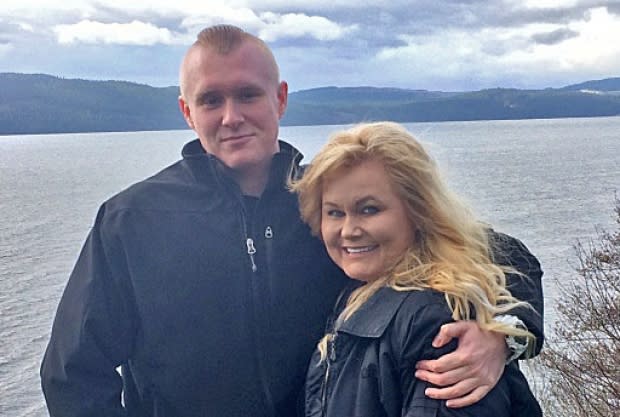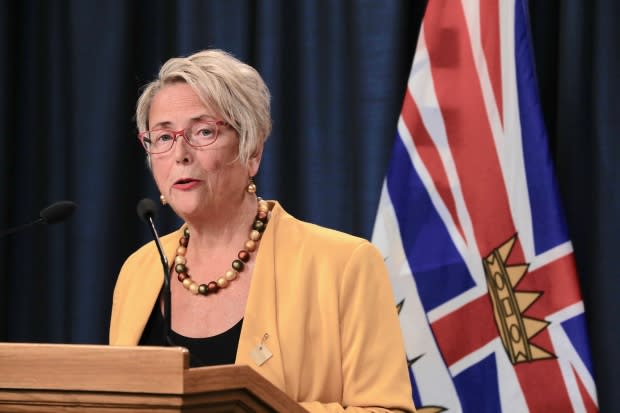Overdose crisis affecting more British Columbians than COVID-19: survey
A lot has changed in the four years since Michelle Jansen tragically lost her son, Brandon, to a fentanyl overdose.
There have been government awareness campaigns, increased funding for treatment centres and a swath of new overdose prevention sites across the province.
Those are changes that might have given her hope in the past. But with overdose deaths reaching record highs in B.C., she fears the crisis is spiralling out of control.
"Even though people are having the conversation, they're not in my opinion dealing with the overdose crisis with the urgency that's required," Jansen told CBC News outside her Coquitlam home.
"We're losing five or six people a day."
An Insights West survey suggests the overdose crisis has a greater impact on British Columbians than the COVID-19 pandemic when it comes to the health of loved ones.
Nearly one-third of people polled have friends or loved ones that grapple with addictions or have died from overdose. Just 10 per cent of respondents know someone who has had COVID-19 or died from it.
The researchers behind the poll say they aren't trying to downplay the coronavirus pandemic, but rather to show that the opioid crisis should be addressed with the same level of urgency as the coronavirus.
"The goal of the poll is to really put it into perspective, that we have two major crises and let's not forget about either of them," said Steve Mossop, president of Insights West.
Parallel health crises
B.C. recorded 911 overdose deaths between January and July of 2020. Over that same period of time, 195 people died of COVID-19.
While more British Columbians who were surveyed are concerned about COVID-19 than the overdose crisis (91 per cent compared to 81 per cent), the poll found more people felt the opioid crisis has an "extremely negative" impact on their community.
"[The overdose crisis] affects every aspect of society. It's not just Metro Vancouver, it's throughout the province, it's through every age range, old and young, male and female," said Mossop.
B.C. has had three consecutive months where more than 170 have died from overdose, with health officials pointing to an increasingly toxic drug supply.
"Border supply chains shut down, the drugs have become increasingly more toxic day by day, contaminated with benzos," said Guy Felicella, a peer clinical adviser at the B.C. Centre for Substance Use.

Moving forward
Felicella has been sober for eight years after struggling with drugs for decades in Vancouver's Downtown Eastside. Watching the overdose numbers climb, he finds it difficult not to compare the two health emergencies.
"The difference between COVID and the overdose crisis is that some lives matter more than others, and if drug users' lives mattered, then we wouldn't be where we're at today," he said.
The Insights West poll suggests a large majority of British Columbians are in favour of more awareness campaigns, more treatment and rehabilitation centres and more funding for addiction counsellors and support workers.
Mossop says the public could also be encouraged to be proactive — similar to what's been done throughout the pandemic.
"There probably is a series of everyday steps we can all do," he said. "Reaching out to a friend who's in need or in trouble, contributing money, pressuring politicians — there are number of ways we can bring this to the forefront, much the same way we've tackled COVID."

In a statement, B.C.'s Ministry of Mental Health and Addictions said it's committed to tackling the crisis with the same urgency the province has put on the pandemic.
"Our ministry is doing the same for the overdose emergency and we need all British Columbians to join us," said a spokesperson.
Those that have lost, like Jansen, say the recent surge in deaths should be a call to action to reduce stigma and flatten another curve.
"COVID is a very real pandemic that's taking lives — and so is the opioid crisis," she said.


